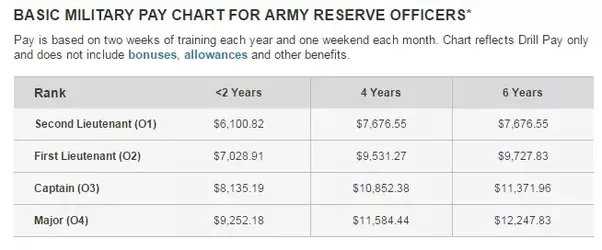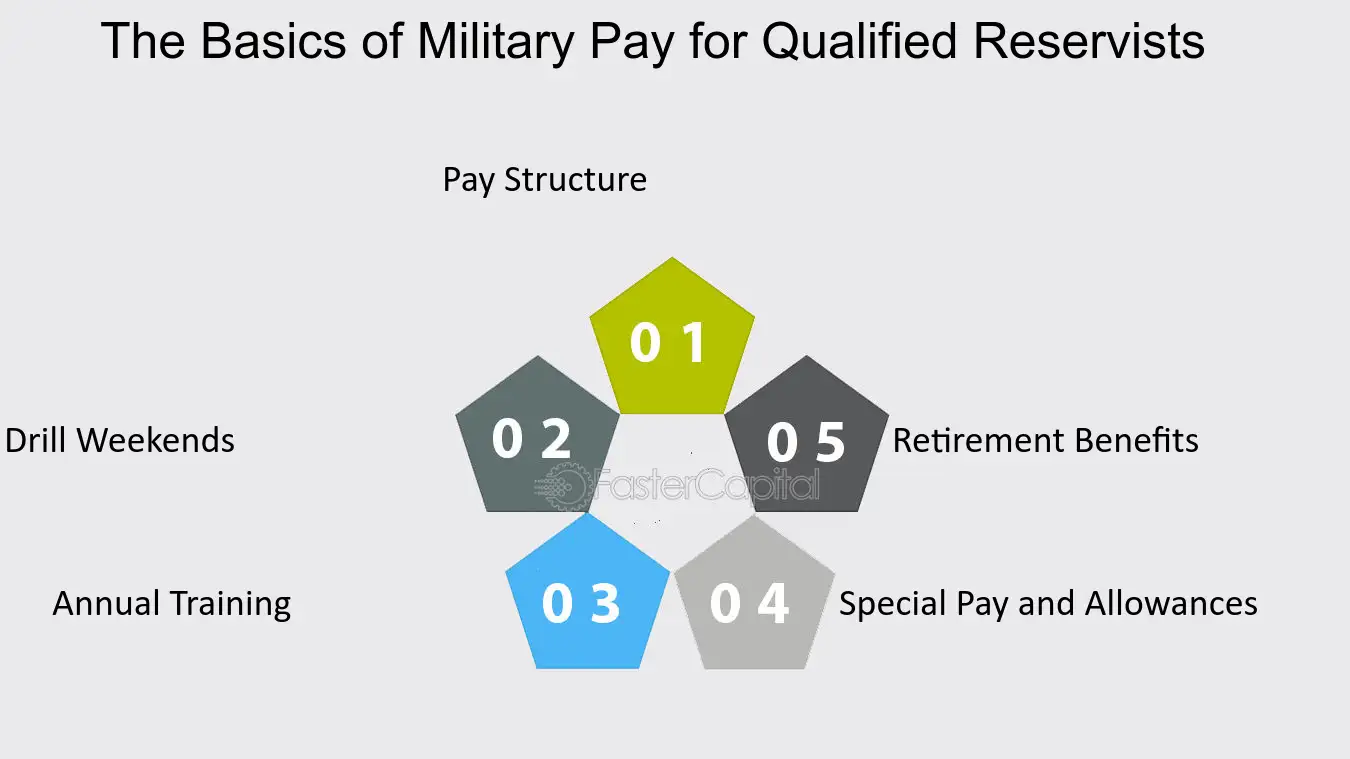Financial Advantages of Qualified Reservist
Being a qualified reservist comes with several financial advantages that can be beneficial for individuals seeking additional income or financial stability. These advantages include:
1. Additional Income
One of the main financial benefits of being a qualified reservist is the opportunity to earn additional income. Reservists are typically paid for their service, which can provide a supplemental source of income. This additional income can be especially helpful for individuals who may be struggling to make ends meet or are looking to save for specific financial goals.
2. Tax Benefits
Qualified reservists may also be eligible for certain tax benefits. For example, reservists who are called to active duty for more than 179 days may qualify for the Combat Zone Tax Exclusion, which allows them to exclude their military pay from their taxable income. Additionally, reservists may be eligible for other tax deductions or credits related to their service, such as deductions for travel expenses or education expenses.
It is important for qualified reservists to consult with a tax professional or utilize tax software to ensure they are taking advantage of all available tax benefits.
3. Retirement Benefits

Qualified reservists are also eligible for retirement benefits through the military. Reservists who serve for a certain number of years may be eligible for a pension upon reaching retirement age. This pension can provide a steady stream of income during retirement and help supplement other retirement savings.
4. Education Benefits

Another financial advantage of being a qualified reservist is access to education benefits. Reservists may be eligible for the Montgomery GI Bill, which provides financial assistance for education and training programs. This can help reservists pursue higher education or acquire new skills that can enhance their career prospects and earning potential.
Additionally, reservists may be eligible for tuition assistance programs that can help offset the cost of education. These programs can provide financial support for reservists pursuing undergraduate or graduate degrees, vocational training, or professional certifications.
Career Opportunities for Qualified Reservist

Being a qualified reservist can provide individuals with a range of career opportunities that can be both fulfilling and rewarding. Here are some of the career paths that qualified reservists can explore:
1. Military Careers:
One of the most obvious career paths for qualified reservists is to pursue a career in the military. This can involve joining the active duty military or working in a civilian capacity for the military. Qualified reservists have already gained valuable experience and training through their service, making them well-suited for various roles within the military.
2. Government Jobs:
3. Law Enforcement:
4. Emergency Services:
Qualified reservists often have experience working in high-pressure and high-stress situations, making them well-suited for careers in emergency services. This can include roles as firefighters, paramedics, or emergency medical technicians (EMTs). The skills and training acquired during their military service can be directly applied to these roles, allowing qualified reservists to make a smooth transition into this field.
5. Private Sector:
Many private sector companies value the skills and qualities that qualified reservists possess. These skills can include leadership, teamwork, adaptability, and problem-solving. Qualified reservists can explore career opportunities in various industries, such as logistics, security, consulting, or project management. Additionally, many companies offer programs and initiatives that support and prioritize the hiring of veterans and reservists.
Overall, being a qualified reservist opens up a wide range of career opportunities in both the public and private sectors. The skills and experiences gained through military service can be highly valuable and transferable to a variety of professions. Whether individuals choose to pursue a career in the military, government, law enforcement, emergency services, or the private sector, being a qualified reservist can provide them with a strong foundation for success.
Drawbacks and Considerations for Qualified Reservist

1. Time Commitment:
One of the main drawbacks of being a qualified reservist is the time commitment required. Reservists are expected to fulfill their military obligations while also balancing their civilian careers and personal lives. This can be challenging, as it may involve taking time off work or being away from family for extended periods.
2. Physical and Mental Demands:
Being a qualified reservist involves physical and mental demands that can be taxing. Reservists may be required to undergo rigorous training exercises, participate in combat drills, and be prepared for deployment at any time. This can put a strain on their physical and mental well-being.
3. Financial Considerations:
4. Career Progression:
Being a qualified reservist can impact career progression in the civilian sector. Employers may view reservist commitments as a potential hindrance to job performance or availability. This could affect promotions, raises, or even job security. It is important for individuals to consider how their reservist responsibilities may impact their long-term career goals.
5. Emotional Impact:
Being a qualified reservist can have an emotional impact on individuals and their families. The stress and anxiety associated with military obligations and potential deployment can take a toll on mental health and relationships. It is crucial for individuals to have a support system in place to help them navigate these challenges.
Overall, while being a qualified reservist offers numerous benefits, it is important to carefully consider the drawbacks and potential impact on various aspects of life. Individuals should weigh the pros and cons before making a commitment to ensure it aligns with their personal and professional goals.

Emily Bibb simplifies finance through bestselling books and articles, bridging complex concepts for everyday understanding. Engaging audiences via social media, she shares insights for financial success. Active in seminars and philanthropy, Bibb aims to create a more financially informed society, driven by her passion for empowering others.
